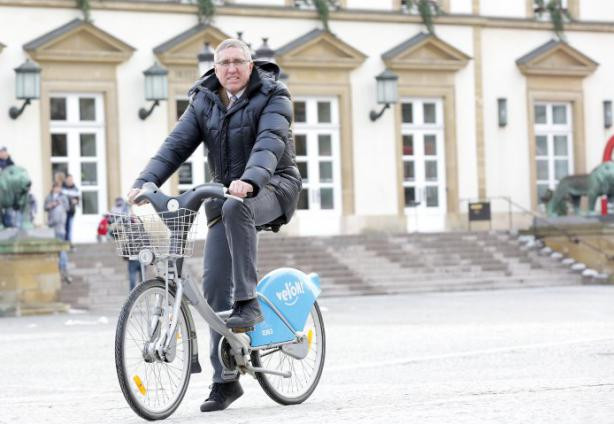Car sharing services, such as the one launched earlier this week by City Mov’ and the Schuler Group, could be “operational” in Luxembourg City as soon as the annual “Mobility Week” in September, the capital’s deputy mayor has said.
Organised by the European Commission, more than 4,000 local governments across Europe promote public transport during the 11 year-old event, which this year takes place from September 16 to 22.
“Mobility Week” was introduced for local authorities to promote sustainable transport measures and also to invite citizens to try alternatives to car use. Therefore, that week would be the most convenient time to present the car sharing services to the citizens of Luxembourg, as it is eco-friendly and practical.
September 16 is also the first day of the school year in Luxembourg state schools.
“Whatever happens, we will be ready by the end of the year”, François Bausch, told Delano sister publication paperJam.lu in an interview published Thursday.
The call for tender was published three weeks ago, said Bausch, who leads the Déi Gréng, the Green party, in both the city council and the Chamber of Deputies.
The car sharing service will be a membership-based programme offering short-term vehicle rentals, and aims to decrease the number of cars in the capital. Indeed, the City of Luxembourg has explained that “it has been shown that a car stays parked on average 23 hours out of 24 and therefore obstructs precious space in the centre of town”.
This system has already been set in big capital cities like Paris, Berlin and San Francisco. Instead of investing in an expensive vehicle, this service allows anyone to use a car promptly, several times a month, to go shopping or even get away for a weekend.
Delayed programme
The city had originally wanted to launch the service at the end of 2011, but was delayed “due to legal matters”, explained Bausch (photo). “Moreover, it is a complicated market that evolves a lot with new ideas, new concepts that come up every six months”, he added.
In the end, the city decided to opt for a specification that is based only on its needs. This was decided in order to keep an open-mind about eventual positive evolutions regarding technical progress, he said. “This is why we chose to orientate ourselves towards a European procedure of call for tenders. We are able to negotiate with the registered providers once their bids have been made.”
